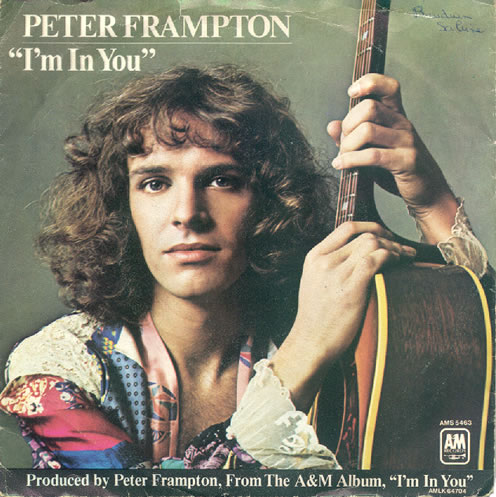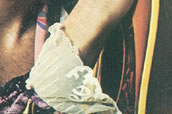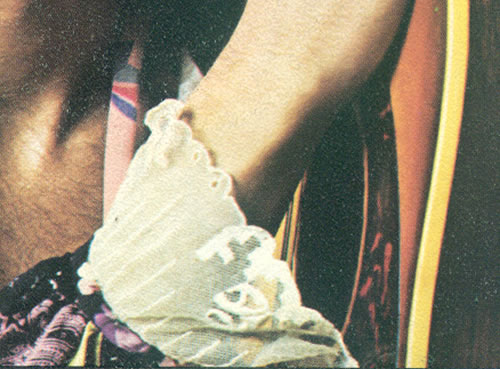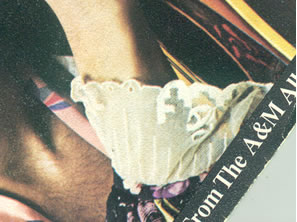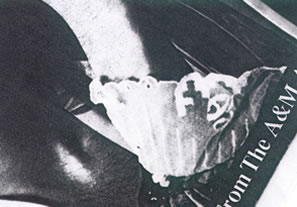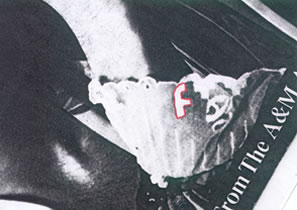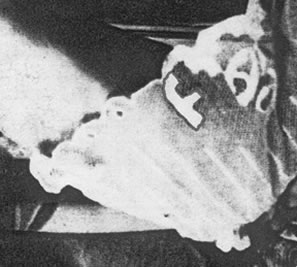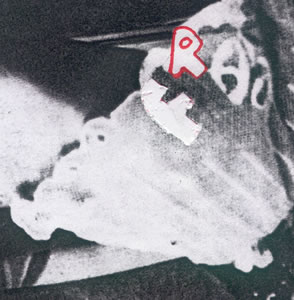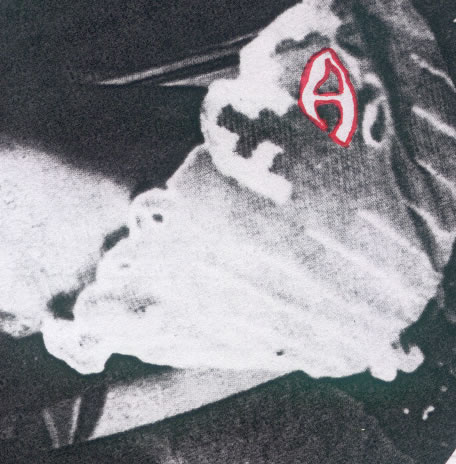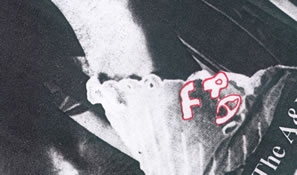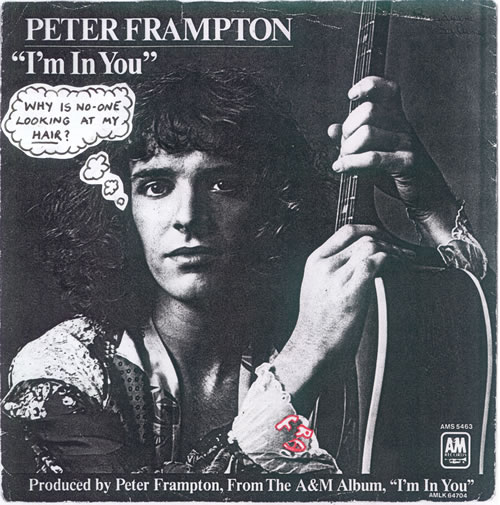Houston ... Fort .. Marcuse: Sin Versus Archetype in Zappa
by
Out To Lunch (aka Ben Watson)
paper addressed to ICE-Z (International Conference of Esemplastic Zappology) 16 January 2004 at Theatro Technis, Crowndale Road, Camden Town, London
When I first met Danny Houston, Zappa freak from Glasgow, in 1976, both our brains exploded, and I'm not sure I've recovered yet. Danny had come down to London from Glasgow in the mid-70s to live on the dole and be a freak and explore everything the English capital had to offer. They gave him a fierce interview in the dole office - one of those ones where they ask if you've been looking for work, and where they threaten to cut off your payments if you can't prove you're trying - so he got a job as a clerk in London Transport. One of the benefits of working for the underground - in the locomotive, rather than cultural sense - is that you obtain a pass allowing you to travel free all over London. Experiencing London accompanied by Danny was like a dream or a drug trip, because he knew how to get across the capital so fast. We'd always get extremely drunk, and by the end of the night, it was hard to work out exactly where we'd been. London was transformed into a warren of pubs, stairwells, bedrooms and kitchens, all interconnected in unexpected ways, with different opportunities for partying at every moment - in halls, back passage-ways, tube carriages, deserted rooms, bus stairwells, strangers' kitchens.
Danny lived in a bedsit in Ealing Broadway. The room's walls were covered in countercultural trophies and detritus. Indeed, it was spookily like Gerry Fialka's end-of-the-garden shack in Venice Beach, Los Angeles. Gerry Fialka is the Zappa freak who wormed his way into the Zappa empire, so that at the point of Zappa's death in 1993, he was employed answering the telephone for the Barking Pumpkin hotline. That, he told me, was how he found girlfriends. Fialka also hosts a Finnegans Wake reading group in the Los Angeles public library (I think they've only got one). Gerry believes if you add Frank Zappa to Marshall McLuhan and Finnegans Wake, the world will suddenly wake up to the idiocy of its abuse of public communications for sterile profit rather than lived fun. In both their homes, it felt like the colour posters of Robert Wyatt and the photocopies of Captain Beefheart lyrics and the cassettes of Sun Ra and George Clinton and a polystyrene totem-pole decorated with a singed ticket to see Arthur Brown and signed photo of Jimmy Carl Black were all that held the ceiling up. I think this was quite literally the case with Fialka's "funny farm", as he calls it, though I may be confusing his shack with the garage inhabited by the founder of "Americans For A Darker America", who'd managed to extinguish all the street lights in his immediate neighbourhood. His garage home was reached through an extremely dark - and rather alarming - hole in a privet hedge. Charlie Parker was playing on his tiny transistor radio when Gerry and I visited on Halloween, and he was dancing and opening bottles of beer. He'd built a wall of books and records to replace the garage door which was stuck in the open position.
Danny's house, though, was a typical Victorian suburban building on an Ealing street. In the, 70s Ealing hadn't been colonised by the Asian community, it was straight and colourless and boring - but Danny's room was a treasure trove, gleaming with counter-cultural rareties. I'd visit to tape his records - he listened to everything on a little mono box grammophone - and then we'd go to a pub called the Wheatsheaf, and get blasted out of our skulls on Fuller's ESB, which started to stand for Extra-Sensory Bitter. If I came down to visit for the weekend - hitchhiking down the A10 from Cambridge - we'd meet in a pub near his work on Saturday lunchtime. Danny's colleagues worked overtime, and didn't like it if he didn't do the same. He seemed to spend most of Saturday afternoon in the pub anyway. He'd pop in and out, there were always other friends of his there to talk to. He lived with a continual buzz of people around him. I was his eccentric student acquaintance from Cambridge University who was also nuts about Zappa. He got in touch with me when I had a letter published in Street Life, a short-lived attempt to create a British Rolling Stone, and he wrote to me at the college address they'd printed. I remember holding up the note he'd sent - singed all round the edge - and everyone saying how weird it was to get a letter from a stranger, out of the blue. Like most Zappologists, our obsession upset and annoyed almost everyone else we knew in regular life. It was odd that we hung out together, considering his slogan at the time was "all students are cunts" (his was long before the c-word began gracing the pages of Time Out). Danny's now doing a degree in Communications at Auckland University, I hear. Danny always had shitloads of friends and acquaintances, he was an organiser, a mischief maker, a leader. He'd buy ten tickets for an Iggy Pop concert and sell them to his friends to make sure we'd meet ahead and arrive sufficiently lubricated.
Why am I telling you about Danny? Because his use of Zappa seems to me to absolutely right. He used Zappa's music as an opportunity for play, for pranks, for upending the passivity enforced by the star system, that gawping-at-the-famous which commercial interests - and the Idiot Bastard website - turn everything into. He knew Zappa's oeuvre was a battle over meaning, and exerted great efforts to insert himself into Conceptual Continuity. When I got to know him, I was starting to learn about revolutionary Marxism. I attended the Socialist Workers Party discussion week in London called "Marxism", and Tony Cliff, the old Palestinian Jew who invented the whole thing, blew me away in his talks. Danny was completely suspicious of organised politics, and fiercely anti-intellectual. He'd tried attending college in Scotland, and the way he was failed condemned intellectual pursuits in his eyes. When I say Danny "was failed", I'm refering to an old book by the anarchist John Holt called Why Children Fail, which explains how our schooling system is actually designed to tell 75% of the population they're stupid. I think the percentages are a little different today, but the same splits still exist - especially among Zappa fans, who always seem to be over-educated super-intellectuals (25%) or proud-to-be-lumpen opponents of book culture (75%). Danny once made me burst into tears when I came back all excited from hearing Cliff explain the difference between Leninism and Stalinism, and he denounced me for using terms no "working-class person had ever heard of". I also remember Danny ruining one holiday with a bunch of people when we'd got hold of a house on the fish-slope in Cromer on the Norfolk Coast - with a big bay window looking at a turbulent North Sea and with a fantastic pub with Adnams and Abbott round the corner. We used to get the bar manager, Eric, to pump beer into a huge glass vase as a take-away. The house - it had five storeys - belonged to my girlfriend's mother, but she was away, so we occupied for a weekend, which is a fantastic treat when you've been living in flats and apartments too small to accomodate anyone more than a couple. Anyway, Danny went into a diatribe about "middle-class student revolutionaries" and how we actually knew nothing, all because there was a toilet under the stairs, and everytime you put the light on, a fan started whirring, in case any of the odours emitted during pissing or defecation "might offend anyone's prissy little bourgeois nostrils". It was years later that I discovered that builders installing toilets without windows are obliged by law to install electric ventilation. Nowadays, every time I'm having a pee in a curry-shop toilet which has been built in some recess, some odd spare corner without windows, and the fan starts whirring, I reflect on the strange way young people persecute each other over their class backgrounds, and how the simple information that fans in closed toilets are obligatory by law might have made for a more pleasant evening in Cromer. Except, it probably wouldn't have helped. Martin Bennell, who recruited me to the SWP originally, and now works as a porter at St Jimmy's hospital in Leeds, was there too, and he and Danny - both older than me - were fighting for my soul and allegiance. On the one hand, an abstract and political concept of the working class, on the other hand, a really existing, but atomised, alienated and culturally-outré example of the real thing. But now I think everything Danny did should be understood as a struggle waged against the alienation of capitalism. His activities - putting people in touch with each other, writing to magazines, putting slips of paper with his phone number into albums in record shops, swapping photocopies and tapes, perpetual pursuit of unreleased Zappa material and coincidences and connections, organising visits to pubs and gigs, practical jokes, freak-outs - were never about some paltry individual career or advantage, some tedious pursuit of fame and fortune. It was always about creating situations where something magical could happen, something not driven by the time-is-money are-you-a-celebrity crap of everyday life as conceived by the tabloids and TV. Magic moments where time appeared to be revealed as an illusion, where genuinely bizarre things happened. Like the Sex Pistols, Danny was a Situationist and didn't know it. His every thought was anti-capitalist. His eagerness for bootleg tape recordings and postal communication inoculated me against the cyber-boosterism and net-frenzy of the mid-90s: thanks to him and the Zappa circuit, I'd been listening to unofficial material from across the globe and making virtual friends for two decades.
But it was when I was listening to a bootleg tape Danny made of Zappa at the Hammersmith Odeon on 24 January 1978, that I realised quite how freak-filled and futuro-fantastic his aesthetic was. During "Titties 'n Beer", at the line "it looked to me like it was titty skin", the sound quality - already boomy and boxy because Danny's microphone couldn't really cope with the volume of the PA - worsens and becomes distant and faint. It was like that moment in "Kaiser Rolls" on FZ:OZ, except there on Danny's tape there was no sleevenote explanation. I listened with consternation. You hear a door slam. Someone mumbles: "Got any dope to sell round here?". Danny says: "No, sorry mate ... actually there's some people standing just there, the first line ... [unintelligible mumble, mmmf] ... I don't think they've got any to sell but they're smoking, they're American ... [more unintelligible mumble, mmmf] ..." Then there's Danny's inevitable question: "You haven't got any tapes have you? Any tapes?". The other guy in the toilet has no idea what he's talking about. Another Zappa maniac. (Why is it when I think about civilians trying to understand a Zappa maniac like Danny I just feel like bursting out laughing?)
Danny was as addicted to live tapes of Zappa as the dope smoker was to his marijuana: Danny collected them, swapped them, duplicated them - but he never sold them or made money from them. He didn't have a tape-recorder, so it was my task to tape the Hammersmith gigs, which meant strapping a tape recorder to my back underneath my "OUT TO LUNCH" raincoat and walking past the door-men with a backwards lean so the bulge wouldn't be noticed. Danny knew he was making a raid on Zappa's copyright and knew that how much he hated bootleggers (we hadn't yet received the message - as outlined in the American edition of Society Pagesin Society Pages - that tape-swapping was okay, Zappa just hated the sleazy way bootleggers can charge high prices for inferior quality recordings just because they're "rare"). For Danny, the fact that tapes could be duplicated was Potlatch all the way (and he'd never heard of Guy Debord). Then, during his tape recording of the Hammersmith Zappa gig from 1978, as the rest of the dialogue from "Titties 'n Beer" leaked through the toilet doors, there was a trickling sound, and you realise we're in the gents and we're listening to the sound of Danny's urine splashing into a urinal. As usual, Danny had to get his cock in there, a case of inevitable insertionism. Then the sound is cut. The tape resumes with Zappa asking for innocent volunteers to dance to "Black Page #2", so we haven't missed much - it was the next song in the show that week. In the same period, Danny also dangled his microphone into the band's dressing room from an outside window in order to catch moments of the Project/Object even Zappa would not have on tape. This idea of introducing your own recorded urine into what Gail Zappa calls The Loop - the international circuit of Zappa tape, CD and MP3 swappers - is for me the definition of the entire zappological project: self-extension via grotesque invasions of privacy, an attack on the discreet individual, a translation into absurd social fragments. It's as crucial a moment in Modern Art as The Fountain (1915) by Marcel Duchamp: genuine "theater-piss".
But what of the oeuvre itself? Zappa's work is exciting because his art is not the product of an ideology or theory, it wrinkles and overlaps and concentrates bits of the material world so that the whole universe may be viewed in it upside down, tiny, like the image inside the convex mirror in the parlour of your great aunt in Chingford. Hence theorists as different as Charles Fort and Herbert Marcuse might be used to apprise us of its multi-layered, multi-valent energies. Charles Fort published The Book of the Damned in 1919. It laid the foundations of an anti-authoritarian approach to knowledge which is now enshrined in the magazine Fortean Times. In 1976, Fortean Times wasn't in most newsagents, and when Danny showed me a copy, seemed more like a dried muffin remnant of the counter culture than the prototype of a popular 90s title. Danny thought my theories about Zappa would appeal to the Fortean crew, and encouraged me to report the bizarre discoveries I was making to the editor. Danny dropped by the editorial office, and was surprised how earnest and "not insane" they were. For a Bolshevik Punk like Out To Lunch, though, Fortean Times and its crop circles and flying saucers seemed off-puttingly hippie and mystical; I didn't quite understand how lacking in any belief - New Age or not - the Fortean method actually is. Out of loyalty to Danny, I bought Book of the Damned second-hand, a cheap paperback published by Sphere in 1979, but couldn't read much of it. Now when I look at Fort's book, it reads as a powerful statement of anti-positivist monism, a kind of plainspeaking man's Hegel. In fact, it reads like Josef Dietzgen, the leather worker whose book The Nature of Human Brain-Work Presented by a Workingman: a Renewed Critique of Pure & Practical Reason was published in 1896 as part of his The Positive Outcome of Philosophy.
Charles Fort pointed out:

